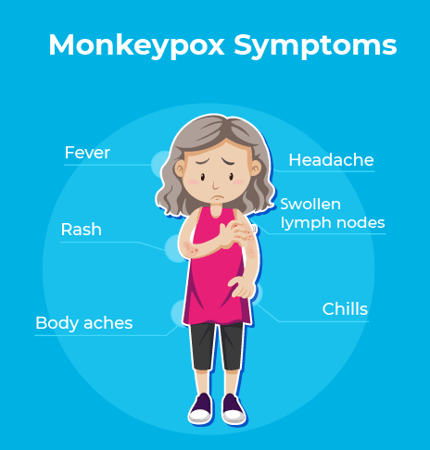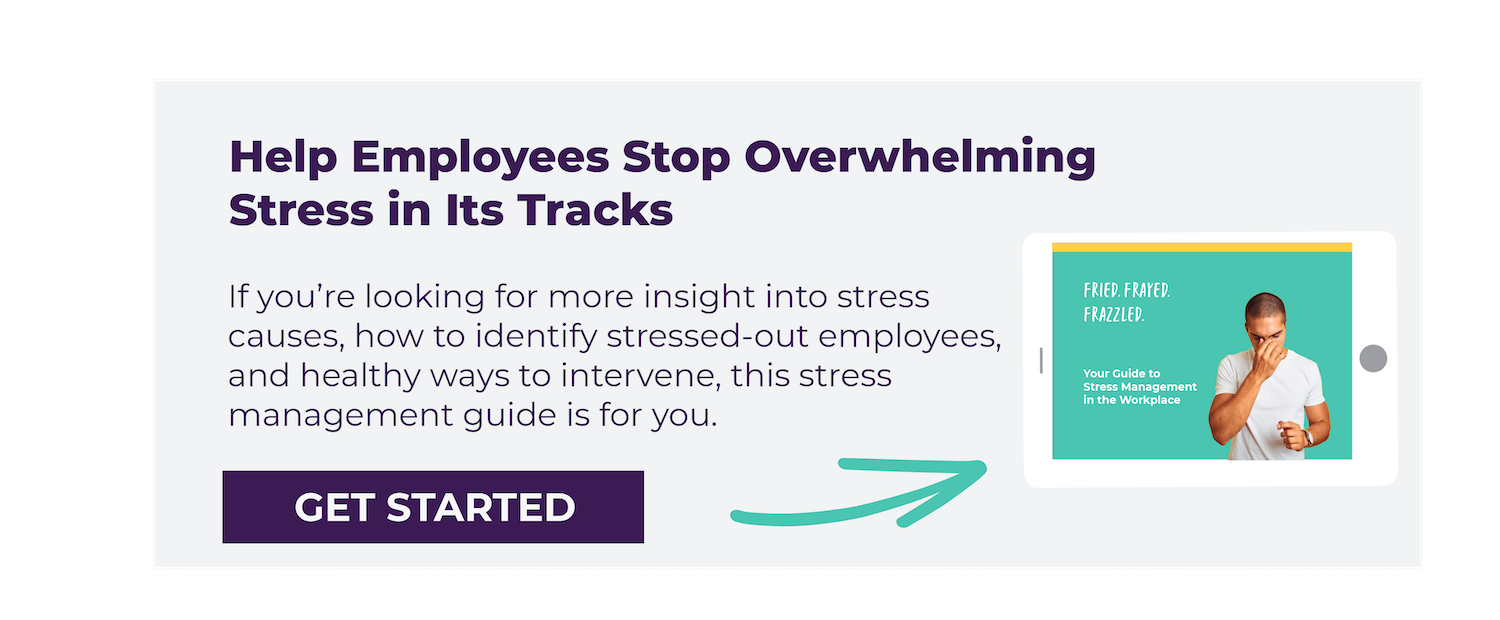 While the monkeypox virus has been declared a public health emergency, it’s important for workers and employers not to panic.
While the monkeypox virus has been declared a public health emergency, it’s important for workers and employers not to panic.
What’s helpful is learning how the virus is contracted, ways to avoid it, and what to do if an employee does contract the virus. Luckily, the symptoms tend to be mild and the virus is rarely fatal, according to the Centers for Disease Control and Prevention (CDC) website.
Below, we take a look at the virus and offer tips for employers on handling another public health concern with ease and confidence. Here’s what you need to know about the monkeypox virus.
What is Monkeypox?
This rare disease is caused by infection with the monkeypox virus. It’s part of the same family of the variola virus, which causes smallpox. While similar to smallpox, the monkeypox symptoms are usually milder. Additionally, contracting monkeypox may be uncomfortable but it’s rarely fatal, according to the CDC website.
As of August 5, 2022, the CDC reports there are just over 7,500 cases in the United States.
There is no relation between monkeypox and chickenpox.
On May 18, a U.S. resident in Massachusetts tested positive for monkeypox after traveling to Canada, according to the Centers for Disease Control and Prevention (CDC). Since then, it’s begun to spread and cities like New York and San Francisco have declared health emergencies. The White House also has declared the virus spread as a public health emergency.
How Do You Get the Monkeypox Virus?
The virus spreads a few different ways, but scientists are still researching this disease that was discovered in 1958.
The virus can spread in the following ways:
- Close, skin-to-skin contact - This includes contact with respiratory secretions, direct contact with a monkeypox rash, scabs, or bodily fluids. You can also contract it by touching items like towels or bedding that have been used by someone with the monkeypox virus.
- Prolonged contact - This includes intercourse, hugging, massaging, kissing, and even prolonged face-to-face contact.
- Animal exposure - Monkeypox can be transmitted from infected animals who scratch or bite a human. It can also be contracted through preparing or eating meat or using products from an infected animal.
What are the Signs and Symptoms?
Like other diseases, monkeypox has signs and symptoms to be on the lookout for if you’re in an at-risk group. Sometimes people will experience a rash first. Most individuals infected with monkeypox will get a rash.
Here’s a look at the monkeypox symptoms:
- Chills
- Fever
- Headache
- Exhaustion
- Swollen lymph nodes
- Muscle aches and backache
- Genital rash that looks like pimples or blisters
- Respiratory symptoms (e.g. sore throat, nasal congestion, or cough)
Symptoms will begin within three weeks of exposure. If you experience flu-like symptoms, the CDC states you can expect to develop the rash one to four days later. The illness lasts up to four weeks.
If Infected, What’s the Protocol?
Stay home. Just like with other major communicable diseases, it’s important to isolate yourself from others until you’re sure it’s gone. Isolation is a key way to stop the virus from spreading to others and the community in which you live. Staying home while symptomatic (especially with a rash), is important.
The CDC has recommendations for monkeypox isolation procedures that both employees and employers will want to follow.
What’s the Treatment for the Monkeypox Virus?
Currently, there are no treatments for the virus. But, because monkeypox and smallpox are genetically similar, scientists have come up with antiviral drugs and vaccines for smallpox that may potentially be effective in treating the monkeypox virus.
The antiviral tecovirimat (TPOXX) may be recommended by doctors for those who are infected who are immunocompromised.
There are two vaccines to prevent the virus: JYNNEOS (also known as Imvamune or Imvanex) and ACAM2000. Limited vaccines are available, so it’s important for those who truly need them to reach out and get them.
RELATED: 7 Easy Ways to Promote National Immunization Awareness Month at Work
Monkeypox & Work: What Employers Need to Know
As an employer, it’s your responsibility to protect workers and keep the workplace free of recognized hazards. As of yet, the Occupational Safety and Health Administration (OSHA) hasn’t released any recommendations or guidance for handling monkeypox in the workplace, but it doesn’t mean it’s not coming. Check the OSHA website regularly for updates.
To protect your employees, consider the following:
- Create an infectious diseases policy - If you haven’t done so during the Covid pandemic, now is the time to do it. This should be specific to employee monkeypox exposure and diagnosis. Workers should not be on the job site if they have monkeypox, period.
- Refresh everyone on sick policies - Now is a great time to review your company’s handbook and update any policies around illness. Remind your team of sick leave, accommodations, etc. and copy and paste those sections (with any updated terms highlighted) into an email for them to review again.
- Don’t forget about the Americans With Disabilities Act (ADA) - State laws and ADA laws are important to remember, especially with public health outbreaks like Covid-19 and the monkeypox virus. Remember employees may be entitled to reasonable accommodations under such laws.
- Keep an eye and ear out for discrimination - Consider reviewing harassment and anti-discrimination policies. Keep ahead of any misinformation or stigmas surrounding the virus by sending out detailed, accurate, and reliable scientific information about the virus and its transmission.
- Remind workers about the importance of handwashing - Yes, it may be tiresome to talk about, but keep your informational posters up about handwashing. Remind workers to wash their hands often, especially before eating and drinking or using the bathroom.
- Get the doc’s note - For workers who are infected with the virus, ensure they have a note from a physician that they can safely return to work. It may seem like a hassle, but it’s important to ensure the health of your workforce.
At this point, education on monkeypox is an important part of keeping your workplace healthy. Just as with the Covid-19 outbreak, keep workers informed of policies, wellness and health benefits, prevention measures, and compliance. Because the monkeypox virus is a transmissible disease, employees should still maintain caution.
How are you keeping workers safe and informed about the monkeypox virus? Share your insight below!



